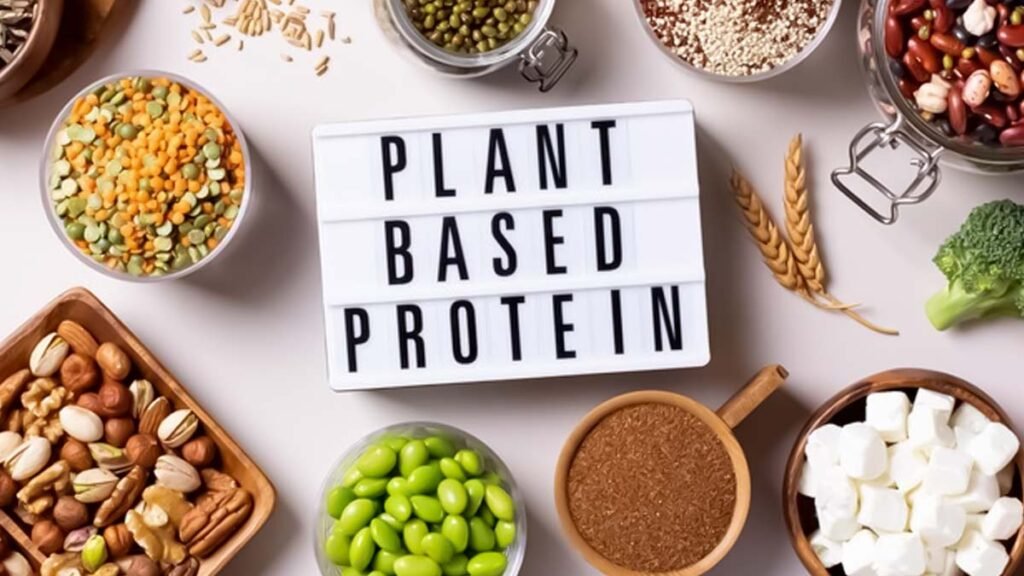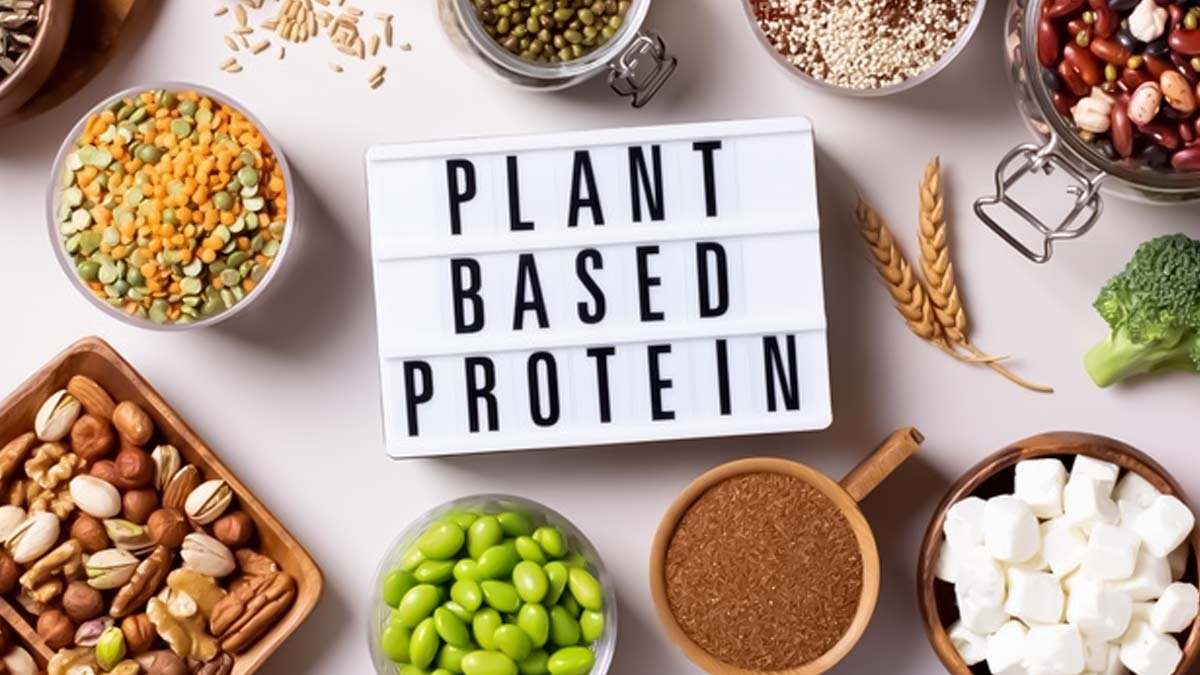Table of Contents

Introduction
If you’re aiming for muscle growth, protein is essential, and it’s not just for meat-eaters. There are numerous vegetarian sources of protein for muscle building that provide the necessary nutrients to fuel your workouts and recovery. Whether you’re a beginner or experienced in fitness, plant-based proteins can effectively help you meet your goals. With the growing popularity of vegetarian and vegan diets, many athletes and fitness enthusiasts are finding that plant-based proteins can provide all the nutrients needed for muscle growth without relying on animal products.
The Importance of Protein in Muscle Building
Protein is crucial for muscle repair and growth. When you engage in resistance training, your muscle fibers undergo stress and micro-tears. Consuming adequate protein helps repair these fibers, leading to muscle growth over time. For vegetarians, the options for high-protein foods are abundant. Incorporating these into your diet can ensure muscle growth while promoting overall health.
In addition to muscle repair, protein plays a significant role in various bodily functions, including hormone production, immune system support, and enzyme activity. Therefore, a sufficient intake of protein is vital not just for those looking to build muscle, but for everyone aiming for optimal health.

Top Vegetarian Protein Sources for Muscle Building
Here are the top vegetarian sources of protein you should consider adding to your muscle-building diet:
- Lentils
Lentils are an excellent source of protein and are packed with fiber, making them a fantastic option for vegetarians. One cup of cooked lentils provides around 18 grams of protein, along with essential nutrients like iron and folate. Including lentils as one of your primary vegetarian sources of protein will support your overall health. - Quinoa
Quinoa is a complete protein, meaning it contains all nine essential amino acids. A cup of cooked quinoa offers about 8 grams of protein, making it ideal for muscle development. Additionally, quinoa is gluten-free and packed with magnesium, which is important for muscle contraction and relaxation. - Chickpeas
Chickpeas are a versatile source of protein, delivering about 14 grams per cooked cup. They’re great in salads, soups, or as hummus for a tasty and nutritious snack. The high protein and fiber content in chickpeas can help manage weight and stabilize blood sugar levels, contributing to overall health. - Tofu
A popular protein choice, tofu provides 10 grams of protein per half-cup. It’s also rich in calcium, which supports bone health—crucial for strength training. Tofu is incredibly versatile and can be grilled, stir-fried, or blended into smoothies, making it easy to incorporate into any diet. - Chia Seeds
Chia seeds may be small, but they pack a protein punch. Two tablespoons of chia seeds provide around 4 grams of protein. Add them to smoothies, puddings, or oatmeal for added nutrition and to bolster your vegetarian sources of protein. - Greek Yogurt
A fantastic source of protein, Greek yogurt contains about 20 grams of protein per cup. It’s also rich in probiotics, which support gut health. Opt for plain, unsweetened Greek yogurt to avoid added sugars and enjoy it with fruits or nuts for a healthy snack. - Hemp Seeds
Offering about 9 grams of protein per 3 tablespoons, hemp seeds are a nutrient powerhouse. They are rich in essential fatty acids and can be sprinkled on salads, smoothies, or oatmeal for added protein and nutrition. - Edamame
These young soybeans provide around 17 grams of protein per cup when cooked. Edamame is a great snack or addition to stir-fries, and they’re packed with fiber, making them an excellent choice for vegetarians.
Benefits of Choosing Plant-Based Protein
In addition to supporting muscle growth, plant-based proteins are generally lower in cholesterol and saturated fat, promoting heart health. They also provide essential nutrients like fiber and vitamins that support digestion and overall well-being. The consumption of plant-based proteins can also be linked to reduced risks of chronic diseases, such as heart disease and diabetes. For more information on how protein aids muscle building, check out this article from Healthline.
Conclusion
Incorporating these vegetarian sources of protein into your diet can significantly support your muscle-building efforts. By focusing on diverse protein sources, you can ensure that you meet your nutritional needs while enjoying delicious meals.
For additional insights into plant-based nutrition, check out our blog on Vegetarian Sources of Omega-3 Fatty Acids.
FAQ Section:
- Can vegetarians build muscle with plant-based proteins?
Yes, vegetarians can build muscle effectively with plant-based proteins like lentils, quinoa, and tofu. - How much protein do I need to build muscle?
Typically, 1.2–2.2 grams of protein per kilogram of body weight is recommended for muscle building, depending on your activity level. - Are plant-based proteins sufficient for muscle recovery?
Yes, plant-based proteins provide the necessary amino acids for muscle repair and recovery.
